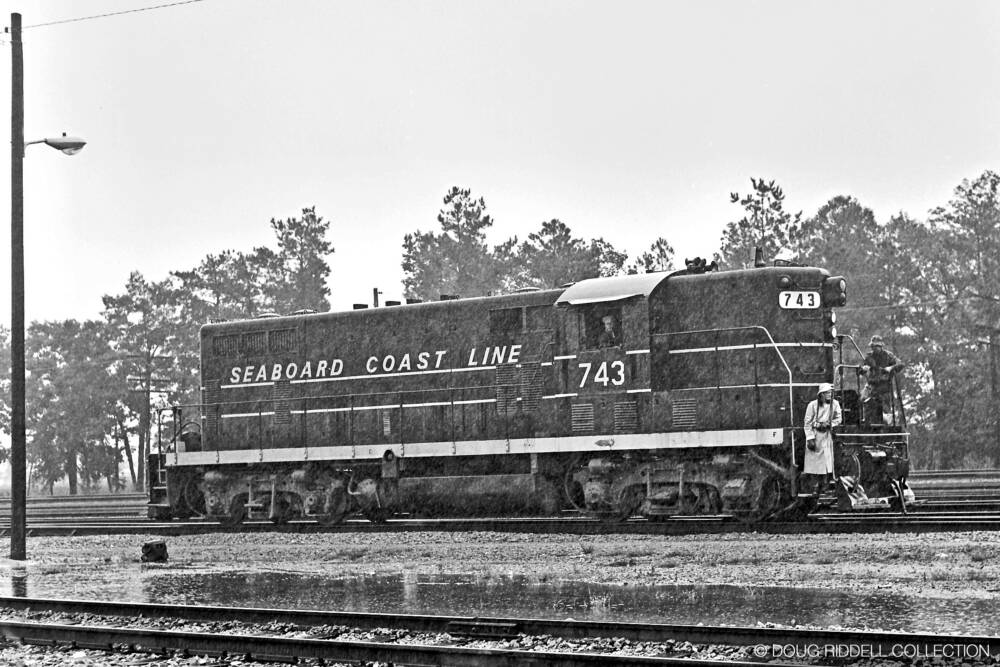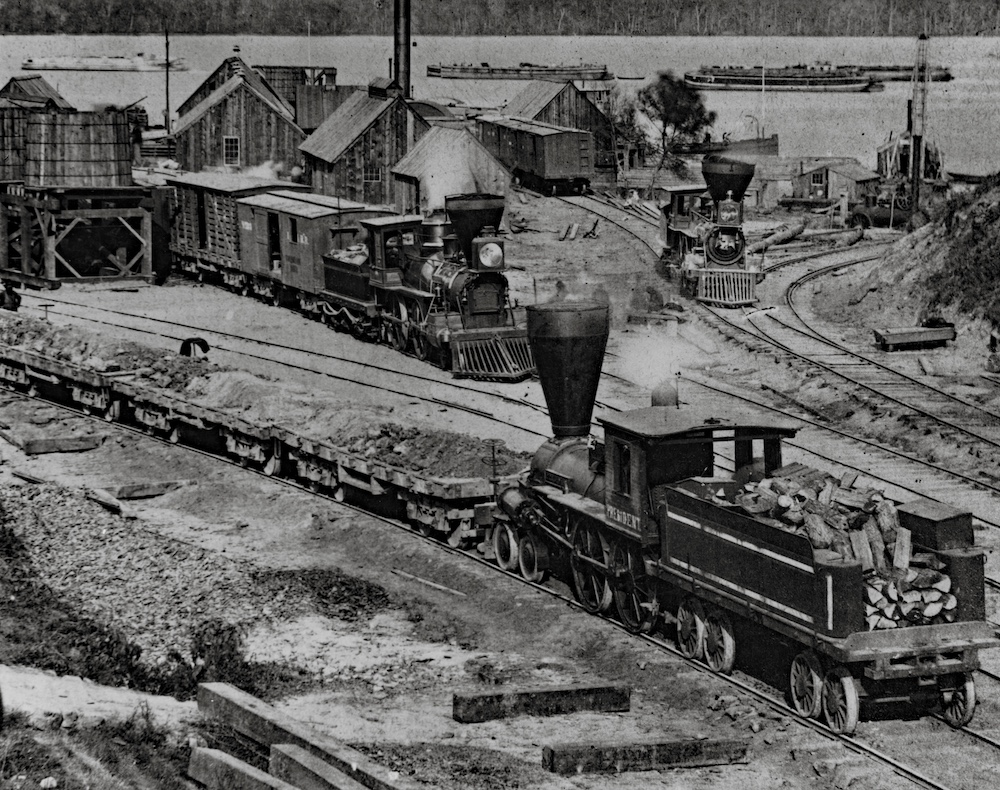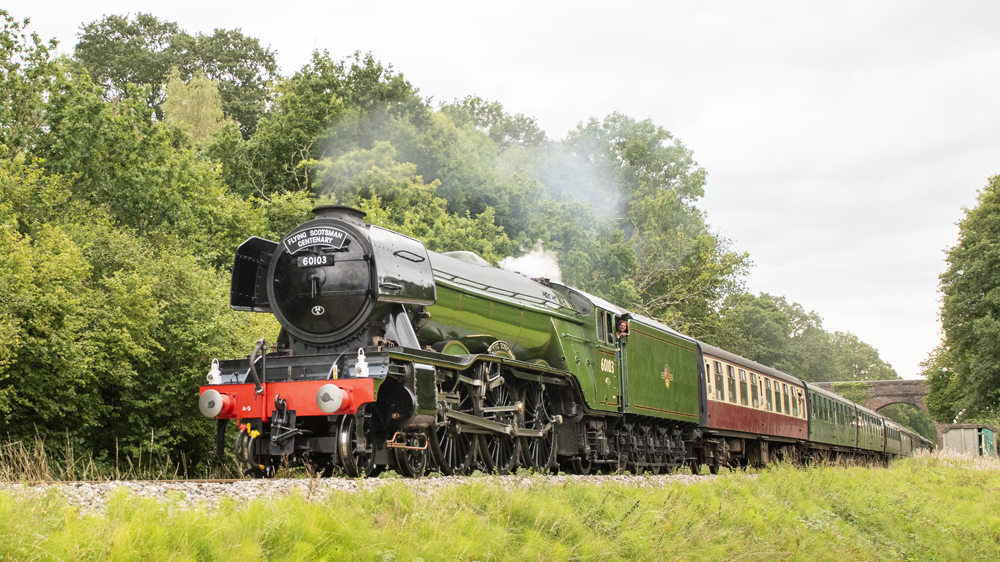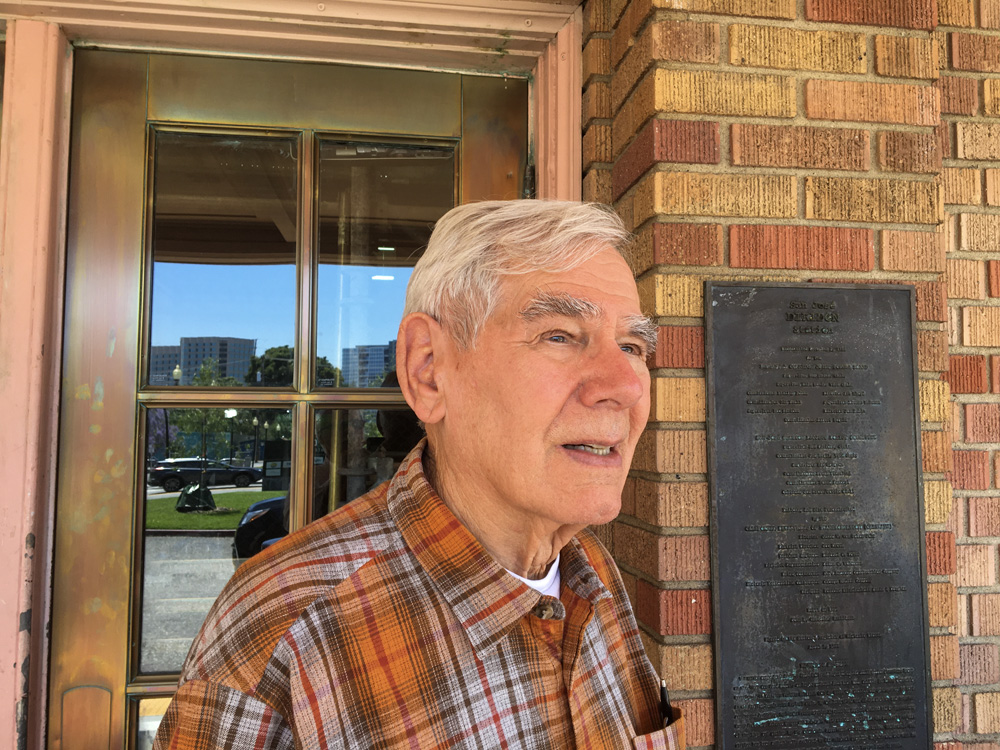
This is a picture worth a thousand words. For decades, artists and photographers awed us with images of mighty locomotives scorching the high iron with hundreds of passengers or thousands of tons of freight in tow. The sun shines brightly as the wind blows the hair of the fearless engineer, perched on the armrest. The friendly conductor waves from the caboose to folks along the right of way. Those moments exist, but to pretend that every day on the railroad is a scene right out of a travel brochure is a stretch.
I’ve photographed images used to lure travelers aboard coaches and sleeping cars for a glimpse of a world that can’t be seen from a plane at 30,000 feet traveling 600 mph. I’ve also captured images of mile-long freight trains moving America’s industrial output. Another frequent subject of my Nikon, however, has been the pained exhausted face of railroaders, the grease-covered overalls, the worn gloves, the sweat-stained shirts.
I’ve scoured railroads from coast to coast for nearly 50 years searching for the ideal image of this other side of railroading. The other day, I found the photograph I’ve always wanted to capture — one that exemplifies the daily life of the working railroader. It wasn’t from some scenic Rocky Mountain right of way, or the urban iron matrix of the northeast. It was snapped at a railroad yard where I had spent hours at the throttle of the very engine depicted. Working railroaders are seen, who looked very familiar, although I’m not sure if they were younger images of the same veterans with whom I later learned the ropes, or not. Yes, I found the image. However, I wasn’t lucky enough to have personally taken it.
The picture is made from a negative I purchased from an estate. It was taken by an unknown photographer at Collier Yard, Petersburg, Va., in October 1971. The brakeman and conductor, braving the elements in their bulky rain gear, are grimacing in the windy downpour as they move about, coupling, uncoupling, and sorting cars to be forwarded on through freight trains. Whatever the actual temperature is, due to the dampness and wind chill it surely feels 10 to 15 degrees colder. But the engineer sits fairly dry and reasonably warm in the locomotive cab. I’d run that same engine, 743, and thousands more before I retired. Believe me, there was no place better to be on days like this.
As a small child, I knew I wanted to be a railroader. Not long after I became a brakeman, I decided I might want to become an engineer. If a picture says a thousand words, this one surely explains why. When I was hired by the Seaboard Coast Line in 1977, it was explained that on the railroad, it never rained or snowed. There was no such thing as lightning or thunder. I’d work in the heat of day and the cold of night, 24/7, 365. I learned not to complain. What good would it have done anyway?
This article can also be read in February Trains 1,000th issue!














Bruce Brewer, my apologies for taking so long to get back to you.
I’d love to have my books back in print, especially the original 1999 “From The Cab.” Doing a sequel has been casually discussed ever since I retired in 2012, but nothing concrete has ever evolved beyond “Wouldn’t it be nice,” and “Let’s do it.” When you consider that I logged another dozen years at Amtrak after writing it, I’m sure there’s enough material (not to mention photos) to produce an interesting volume. I’ve thought seriously about doing a photo-essay format book, taking one of my pictures and telling a story about it. Technology has changed a lot in 25 years too. I’m not sure whether it would be a print volume, electronically available, or both. Right now, I’m just getting my feet wet, thrilled to be included in trains.com. Who knows what could result? Thanks and best wishes.
Doggone it, Doug! Please sit down and compose a sequel in the same format. Hopefully, that will inspire the publisher to bring your first edition back to life too!
As a retired engineer I love to read stories that coincide with my experiences. If only the trainmaster knew. Well, we can tell the stories now. It will help keep our brains sharp.
Doug, when will they get your great book back in print?
I’ll never forget the lady who read off the list of paid holidays at the railroad job interview.
“I don’t know why I’m telling you this,” she said. “As new hires you will never get any holidays off.”
Great to see your byline again. It is the first thing I look for. I do not have many regrets in life, but one that stands out is the fact I never took enough photos of my Co-Workers. I had a job to do first and the camera was second out. I do have a lot of stories….
We used to have a saying during geophysical surveying and field work. “The first drop of rain that hits you is an act of god, the second drop is your own fault”. I bet the engineer could relate but not the brakeman. Great article and thought provoking.
Thanks, Peter. Always looking for ways to highlight the men and women who make the trains run, and tell their stories.
Yep, this is how we do it!
And never a dull day!
Great article Doug, quite a tribute to all who work the rails. Thanks!!
Thanks for the compliments, John. Always love hearing from readers.